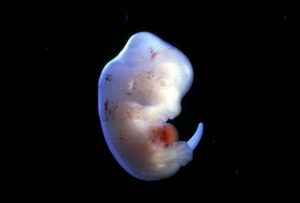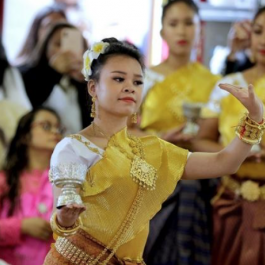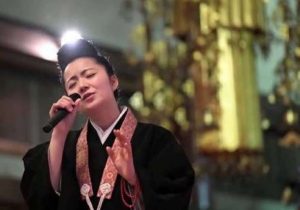
Amitabha’s First Vow: The Vow of No Wretched Realms in the Land
Dharmakara Bodhisattva, the former and final body of Amitabha Buddha, presented his 48 vows together as a totality, a “package” of deliverance. The 48 vows are not only internally coherent but also are all related to Amitabha’s 18th Vow, the Fundamental Vow, known as the Vow of Rebirth by Amitabha-Recitation. For details, please see my previous article.
Amitabha’s First Vow, known as the Vow of No Wretched Realms in the Land, states:
“If, when I attain buddhahood, should there be in my land a hell, a realm of hungry spirits, or a realm of animals, may I not attain perfect Enlightenment.”
Dharmakara takes as his first priority the deliverance of those beings who have the least capacity to leave world of suffering.
Why does Amitabha Buddha deliver evil people who should go to hell? As ordinary beings, we may think evil people should be punished. “Refrain from evil” is what Shakyamuni Buddha teaches. One who commits karmic offenses should receive appropriate retributions governed by the Law of Cause and Effect. Is Amitabha’s vow contradictory? What is wrong with our view?
The “Teaching of Inhibition” and the “Teaching of Embrace”
Our view is inevitably different from the Buddha’s. The Buddha advises all ordinary beings not to commit heavy karmic offenses because the corresponding karmic retribution is very serious, the corresponding karmic suffering almost intolerable. For example, in Amitabha’s 18th Vow, he ends the vow with an exhortation against evildoing: “Except those who commit the Five Gravest Transgressions and Slander the Right Dharma.”
However, even if ordinary beings commit heavy karmic offenses, Amitabha Buddha will not give them up. Anyone can be delivered by the Buddha if they truly repent and ask the Buddha for help by calling the Name of Amitabha Buddha, as stated in the passage of “On Rebirth for Those in the Lowest Level of the Lowest Tier” in the Contemplation Sutra.
Master Shandao identifies the former approach as the “teaching of inhibition” and the latter as the “teaching of embrace.” This is similar to parents who teach their kids not to do wrong, but, when they do they forgive them if they repent of their wrongdoings.
Moreover, ordinary beings being reborn within the Six Realms have had almost innumerable chances to commit the Five Gravest Transgressions in this life or in past lives, so they are fearful of falling into the Three Wretched Realms after their present life ends. This is an intrinsic fear among all ordinary beings.
This vow can draw the attention of all ordinary beings in the cycle of birth and death in the Six Realms and arouse their interest to learn more about Amitabha’s Land of Bliss. Dharmakara Bodhisattva wishes to eradicate their fears and worries, and to pacify and ease their minds.
Limitless Deliverance
The First Vow also indicates Amitabha’s compassionate wish to save all suffering beings first. He calls to them:
“All you wretched beings in the Hell Realm, the Hungry Ghosts Realm and the Animal Realms, please, aspire to be reborn in my land and let me take you across the ocean of suffering with my teaching. Then, you will soon become Buddhas.”
As said in the Adornment Sutra, another version of the Infinite Life Sutra:
“All you sentient beings in various realms of reincarnation—come to be reborn in my land and receive endless joy. My kind heart always exerts itself to rescue sentient beings from suffering, and to endlessly deliver all sentient beings in Avici Hell.”
“Various realms of reincarnation” are not restricted only to the hell realms, but also include the hungry ghost, animal, asura, human, and celestial realms. As ordinary beings, we are used to differentiating people by class, nationality, career, and so on. However, in the eyes of Amitabha, all beings are equal since we are all the targets of his compassionate deliverance.
Limitless Benefits
The sutra also says:
“If I attain the Perfect Enlightenment, my Buddha name will be Amitayus. All sentient beings who hear this Name will come to my land. Their bodies will be golden in color like the Buddha, and their forms will be splendid, perfect, and complete. Moreover, they will benefit various kinds of sentient beings with the great compassionate mind.”
The benefits of rebirth are not restricted to liberation from the cycle of birth and death and an end to the cycle of reincarnation within the Six Realms, but also include becoming buddha-like beings. Isn’t it incredible? As our karmic obstructions are heavy and deep, and the merit and virtues needed to dwell in the buddha-realms are vast, how can Amitabha transform us from one destined for hell to becoming a buddha?
Buddhism advocates great kindness, compassion, relieving others from suffering, and bestowing joy. These are perfectly demonstrated by Amitabha’s teaching of deliverance through his Name, the pristine Pure Land teaching.
None of the Three Wretched Realms, even their names, exist in the Land of Bliss
The Amitabha Sutra says:
“Again, Shariputra, in that land there are always many kinds of rare and beautiful birds of various colors, such as swans, peacocks, parrots, sharis, kalavinkas and jivamjivakas. Six times during the day and night, these birds sing with melodious and delicate sounds, which proclaim such teachings as the five roots of goodness, the five powers, the seven practices leading to Enlightenment, and the Eightfold Noble Path. On hearing them, the people of that land become mindful of the Buddha, the Dharma and the Sangha.
“But, Shariputra, you should not assume that these birds are born as retribution of their evil karma. The reason is that none of the Three Wretched Realms exists in that buddha-land. Shariputra, even the names of the three evil realms do not exist there; how much less the realms themselves? These birds are manifested by Amitabha Buddha so that their singing can proclaim and spread the Dharma.”
All phenomena in the Land of Bliss are manifestations of Amitabha Buddha’s merit and virtue, so that all its inhabitants are always mindful of the Three Jewels: the Buddha, the Dharma and the Sangha. They also enjoy constant Dharma delights in the Land of Bliss, which is the greatest joy of all.
Related features from Buddhistdoor Global
Situating Amitabha’s 18th Vow Among the 48 Vows
Categorizing Amitabha’s 48 Vows in the Infinite Life Sutra
What Motivated Bodhisattva Dharmakara to Make the 48 Great Vows?











